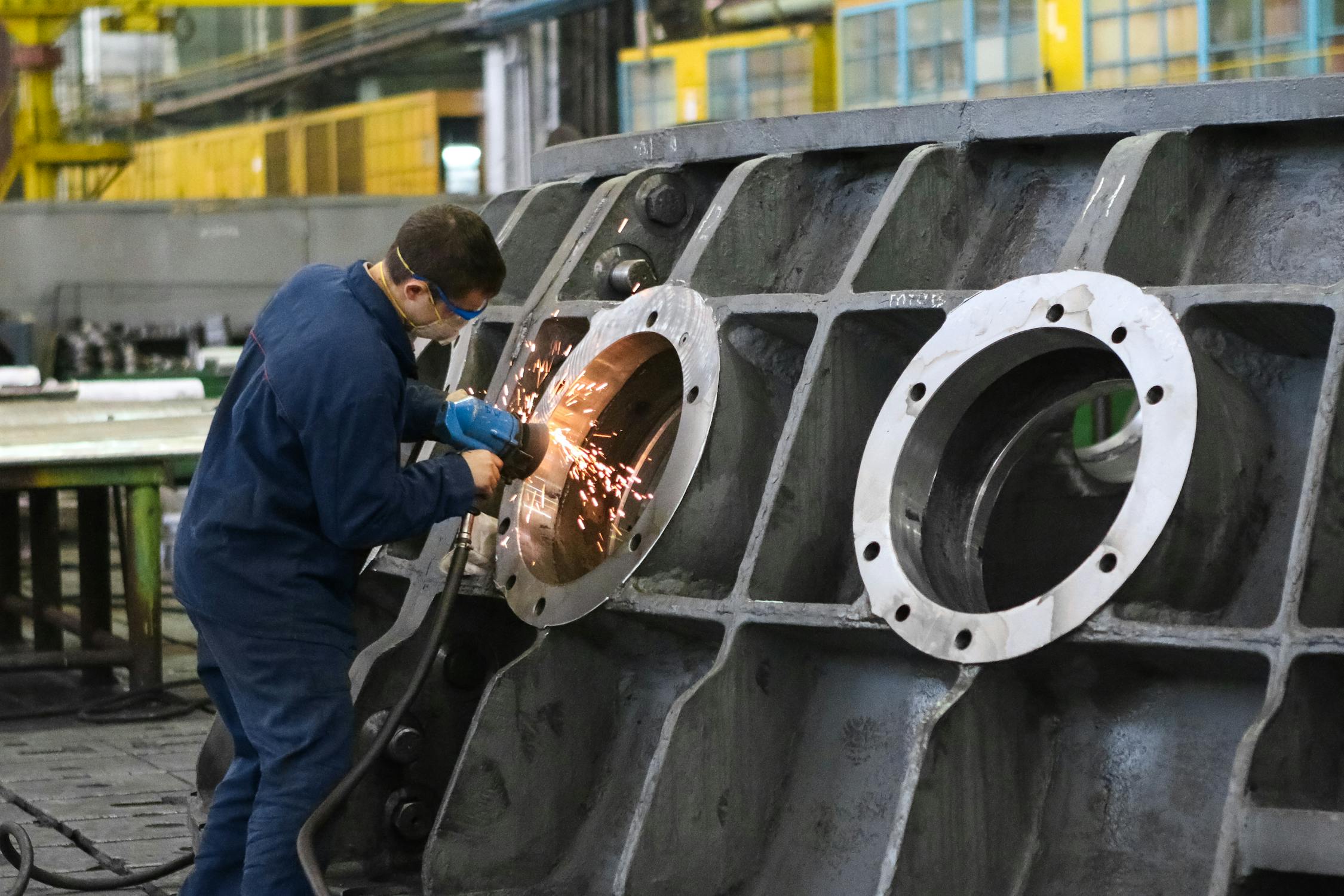How to make $25/Hour as a Factory Worker in Canada
Factory jobs in Canada are often considered the backbone of the economy, providing steady employment and significant earning potential for those willing to work hard and develop their skills.
Achieving a wage of $25/hour is not only feasible but also attainable with strategic career choices, training, and geographic positioning. This comprehensive guide outlines actionable steps, industries to target, and locations that offer lucrative factory work opportunities.
Results
#1. What is your primary reason for considering a marriage visa?
#2. Do you know which documents are required for a marriage visa application?
#3. How soon are you planning to apply for a marriage visa?
#4. Are you aware of the benefits a marriage visa provides?
#5. Which challenge do you think is the hardest part of applying for a marriage visa?
#6. What support would be most helpful to you during the application process?
Understanding Factory Work in Canada
Factory jobs in Canada span various industries, including automotive manufacturing, food processing, metal fabrication, and electronics assembly. These roles often require physical labor, attention to detail, and teamwork.
While entry-level positions may start at or slightly above minimum wage, experienced workers in specialized roles can earn significantly higher wages.
The Canadian manufacturing sector is vital, contributing around 10% of the national GDP and employing over 1.7 million workers. Despite automation, demand for skilled workers continues to grow in high-tech industries like aerospace and advanced manufacturing.
Unskilled Jobs in Canada
Job Title Average Salary (CAD)
Car Wash Attendant $40k/Year
Luggage Handler $45k/Year
Fast Food Worker $20/Hour
Bicycle Courier $20/Hour
Strategies to Achieve $25/Hour as a Factory Worker
1. Target High-Paying Industries
Some manufacturing industries are known for offering higher wages due to the complexity of work, demand for specialized skills, or unionized environments.
Examples of High-Paying Industries:
- Aerospace Manufacturing: Companies in this sector produce aircraft parts and systems, requiring precision and technical expertise.
- Automotive Manufacturing: This industry, especially in Ontario, offers competitive wages and growth opportunities.
- Food Processing and Packaging: Large-scale facilities require certifications, which often result in higher pay.
- Metal Fabrication and Heavy Machinery: Specialized skills like welding and CNC machining can fetch $25/hour or more.
2. Develop Specialized Skills
Earning $25/hour often depends on the skills you bring to the table. The more specialized your abilities, the higher your earning potential.
Skills in Demand:
- CNC Machining: Proficiency in computer numerical control machining is a critical skill in precision manufacturing.
- Forklift Operation: Certified forklift operators are indispensable in warehouses and factories.
- Welding: Welders with advanced certifications can command top-tier wages in metal fabrication.
- Quality Control: Expertise in quality assurance is vital in ensuring products meet standards.
To gain these skills, consider enrolling in vocational schools or on-the-job training programs. Many employers also subsidize training for in-demand roles.
3. Certifications to Boost Your Earning Potential
Acquiring industry-relevant certifications can set you apart from other candidates and justify higher wages.
Key Certifications:
- WHMIS (Workplace Hazardous Materials Information System): Essential for handling hazardous materials.
- First Aid and CPR: Often required for safety roles in factories.
- Forklift Certification: Allows you to operate specialized equipment.
- CNC Programming Certificate: Demonstrates expertise in advanced manufacturing technology.
4. Work in High-Demand Locations
Your earning potential is heavily influenced by your location. Regions with higher living costs or industries in demand tend to pay more.
Top Provinces for Factory Work:
Province Average Hourly Wage (CAD)
British Columbia 26
Alberta 25
Saskatchewan 26
Manitoba 22
Ontario 23
Quebec 23
New Brunswick 20
British Columbia: Offers high wages, especially in metropolitan areas like Vancouver.
Ontario: A hub for automotive and aerospace manufacturing.
Alberta: Known for its resource-based economy and heavy machinery production.
5. Negotiate for Higher Pay
Negotiation can significantly impact your earnings. When applying for a job or during performance reviews, provide evidence of your skills, certifications, and experience. Research the industry standard in your region to strengthen your case.
6. Leverage Overtime Opportunities
Factory jobs often involve overtime during peak production periods. Overtime pay, typically 1.5 times the regular hourly wage, can help you exceed $25/hour effectively.
7. Join a Unionized Workplace
Unionized factories often offer better wages, benefits, and job security. Some prominent unions in Canada include Unifor and the Canadian Auto Workers Union.
Case Study: A Path to $25/Hour
Meet Emily: A CNC Machinist in Ontario
Emily began her career as an assembly line worker earning $16/hour. By investing in a CNC machining certification and gaining three years of experience, she transitioned to a machining role.
Working overtime during peak seasons, Emily now earns over $28/hour, demonstrating how strategic career moves can result in significant pay increases.
FAQs on Factory Worker Jobs in Canada
Can I earn $25/hour without prior experience?
While entry-level roles rarely pay $25/hour, gaining certifications or joining high-paying industries can fast-track your earnings.
Do factory workers in Canada receive benefits?
Yes, most factory workers receive benefits such as health insurance, retirement plans, and paid time off. Unionized roles often provide enhanced benefits.
Are factory jobs physically demanding?
Many factory roles involve repetitive tasks and standing for long hours, but modern facilities are increasingly ergonomic.
Is it possible to advance in factory jobs?
Yes, starting in entry-level roles and gaining experience or certifications can lead to supervisory or specialized positions.
Do part-time factory jobs pay as well as full-time positions?
Part-time roles often pay the same hourly wage but lack the benefits and overtime opportunities of full-time positions.
What are the most common factory jobs in Canada?
Factory jobs vary widely depending on the industry. Some of the most common include:
- Assembly Line Worker: Involved in assembling parts or products.
- Forklift Operator: Responsible for transporting materials within the factory.
- Machine Operator: Runs and maintains machinery used in production processes.
- Warehouse Worker: Manages inventory and prepares goods for shipment.
- Quality Control Inspector: Ensures products meet safety and quality standards.
Each of these positions can pay varying wages depending on the industry and the experience level.
Is factory work in Canada dangerous?
Factory work can involve hazards, particularly in industries like construction, metalwork, and food processing. Common risks include heavy machinery operation, exposure to hazardous materials, and repetitive strain injuries.
However, employers are required by law to provide training and ensure safety measures are in place, including protective equipment and regular safety drills. Canadian workers’ compensation laws help protect workers in case of injury.
How long does it take to reach $25/hour in a factory job?
Reaching $25/hour can take anywhere from a few months to a few years, depending on the type of job, the level of experience required, and the availability of overtime opportunities.
Factory workers with certifications or who enter skilled trades can reach this wage more quickly than those in entry-level, general labor positions.
A combination of gaining experience, taking on more responsibilities, and working in industries with higher pay rates can accelerate your path.
Are factory jobs in Canada unionized?
Many factory jobs in Canada are unionized, particularly in industries like automotive manufacturing and aerospace. Unions can significantly increase wages, benefits, and job security.
The most prominent unions include Unifor, the Canadian Auto Workers (CAW), and the United Steelworkers (USW). Being part of a union typically guarantees higher pay, better working conditions, and additional perks such as pension plans, healthcare, and more.
Can I earn $25/hour as a factory worker with a high school diploma?
Yes, it is possible to earn $25/hour as a factory worker with just a high school diploma, especially if you work in a high-demand field or obtain specific skills.
For example, machine operation or welding may not require a college degree but does benefit from technical training or certifications. Employers in manufacturing industries may offer on-the-job training to help workers develop the necessary skills to reach higher wages.
What industries offer factory jobs paying $25/hour or more?
Industries like automotive manufacturing, aerospace, pharmaceuticals, technology, and heavy equipment manufacturing often offer higher wages due to the skills and precision required.
How do I find factory jobs that pay $25/hour?
To find high-paying factory jobs, you can start by looking on job boards such as Indeed, Glassdoor, or Workopolis. Also, check industry-specific sites for openings in high-paying sectors such as aerospace or automotive manufacturing.
Networking through LinkedIn or local job fairs can also help. Consider applying directly to large factories or unionized workplaces, which often offer better wages and benefits.
Is it easy to find factory jobs in Canada as a newcomer?
Canada has a strong demand for skilled and unskilled labor, making factory jobs accessible for newcomers, especially through programs like the Temporary Foreign Worker Program (TFWP) or Provincial Nominee Programs (PNPs).
Do factory workers work nights and weekends?
Many factory jobs operate in shifts to maintain round-the-clock production. This means workers may need to work nights, weekends, or even holidays, depending on the facility’s production schedule.
Overtime opportunities, often paid at a higher rate, can also contribute to higher overall earnings. Workers in shift-based jobs may receive premium pay rates for night shifts or weekend work, making it easier to reach a $25/hour wage through overtime.
Before You Go
Earning $25/hour as a factory worker in Canada is not only possible but achievable with the right strategies. By targeting high-paying industries, developing specialized skills, and working in high-demand locations, you can maximize your earning potential.
The manufacturing sector remains a vital part of Canada’s economy, offering stable and rewarding career opportunities.
Whether you’re just starting or looking to advance, investing in certifications and gaining experience can open doors to lucrative positions. Use this guide as a roadmap to navigate your career and secure a fulfilling role in Canada’s thriving manufacturing industry.












I hereby apply for Visa sponsorship Job in Canada and marriage sponsorship Visa to enable me to relocate and marry my wife in Canada and I will be grateful if my application is favourably considered.
I hereby apply for Government’s Visa Sponsorship Job in Canada and I will be most grateful if my application is favourably considered.
I hereby apply for marriage Sponsorship Visa to enable me to relocate and marry my wife in Canada and I will be grateful if my application is favourably considered.
Please chat me with this number. +2348036694893 either on Whatsapp or Messenger or direct call, please.
I hereby apply for Visa sponsorship Job in Canada and marriage sponsorship Visa to enable me to relocate to Canada and marry my spouse and I will be most grateful if my application is favourably considered.
I hereby apply for Visa sponsorship Job in Canada and I will be most grateful if my application is favourably considered.